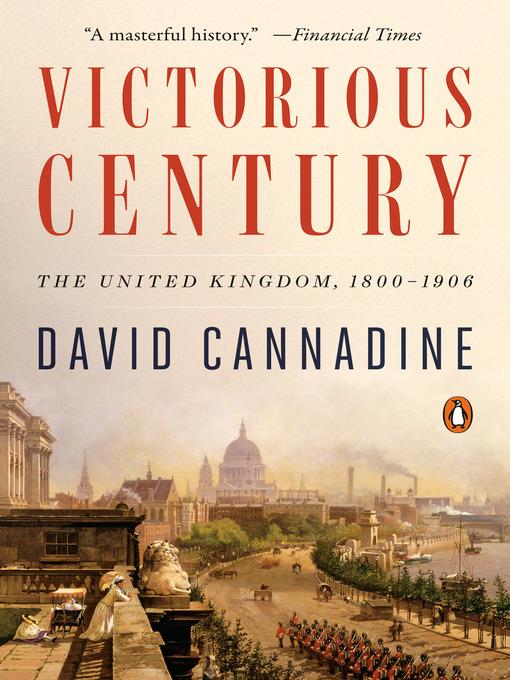
Victorious Century
The United Kingdom, 1800-1906
کتاب های مرتبط
- اطلاعات
- نقد و بررسی
- دیدگاه کاربران
نقد و بررسی

September 1, 2017
Dodge Professor of History at Princeton University, the general editor of the Oxford Dictionary of National Biography, and president of the British Academy, eminent historian Cannadine chronicles Britain during its "victorious century," stable at home and a leader abroad yet also rent by uncertainty as revolutions in industry and science completely changed the world.
Copyright 2017 Library Journal, LLC Used with permission.

November 6, 2017
Cannadine (The Undivided Past), professor of history at Princeton, focuses on high politics, with a fondness for historical irony and an eye for patterns, in this steady history of 19th-century Britain. He book-ends his study with two telling events: the 1800 Act of Union, which united Ireland with Great Britain, and the 1906 general election, which brought into power the same Liberal Party that had split over the issue of Irish home rule in the 1880s. As Cannadine notes, 19th-century Britain bequeathed to the world many of the institutions of modern life: stamps, photographs, bicycles, football, telephones, sewers, detective novels, and even bacon and eggs. It was also deeply religious, imperial-minded, and governed by an entrenched aristocracy—a place where winter living conditions for the working classes were “almost unendurable.” Determined to reconcile these two images of 19th-century Britain as both the birthplace of modernity and a gloomy Victorian twilight, Cannadine writes fluently about Britain’s rise to industrial preeminence and subsequent world-leading status, providing a detailed examination of political machinations and imperial excursions. Cannadine’s account is solid and informative, but it lacks anything remotely bold or provocative, or anything that complicates the book’s central thesis of the remarkable stability of British political institutions compared to their continental counterparts. Maps & illus.

November 1, 2017
The acclaimed British historian meticulously traces every aspect of Britain from the Act of Union (with Ireland) in 1800 until the 1906 landslide by the Liberal Party.There is a danger of getting bogged down in the details, but diligent readers will find plenty of enlightenment here. British Academy president Cannadine (History/Princeton Univ.; Margaret Thatcher: A Life and Legacy, 2017, etc.) follows the period called the Pax Britannica, when Britain avoided military entanglements with European powers between the Napoleonic Wars and World War I. England's unique unwritten constitution provided the nation with an adaptable continuity while other nations were caught in the turmoil of revolution. In this period of tremendous upheaval in all the great European powers, Britain maintained government stability while engaging in unprecedented expansion. The Industrial Revolution and the Reform Act(s) enabled the country to wield a disproportionate influence over the affairs of the world. Revolutionary developments in industry and infrastructure encouraged population and agricultural booms as well as growth in the arts, writing in particular. However, at the same time, food prices rose, and exports were unreliable; there were bank panics and strikes by Luddites who feared the new mechanized looms. Of course, before all that could happen, England and other nations had to deal with Napoleon. By 1815, it had taken multiple coalitions of Dutch, German, Prussian, and Russian forces to defeat him. In the end, it was the Russian manpower and British economic advantage and naval supremacy that won the day. At that point, England had to pay the costs incurred in both the Napoleonic Wars and the American Revolution. Peace, new markets, income, property taxes, and customs and excise taxes helped tremendously. Territorial expansion was worldwide, with local governors deciding which areas to annex. Inevitably, the empire's pre-eminence would buckle under its own far-flung reach. Ever adept, Cannadine shows us why and how it happened.Dense but satisfying history of a time when "Britons were prodigiously energetic, industrious and creative, even as they were also in many ways a flawed and fallible people."
COPYRIGHT(2017) Kirkus Reviews, ALL RIGHTS RESERVED.

























دیدگاه کاربران